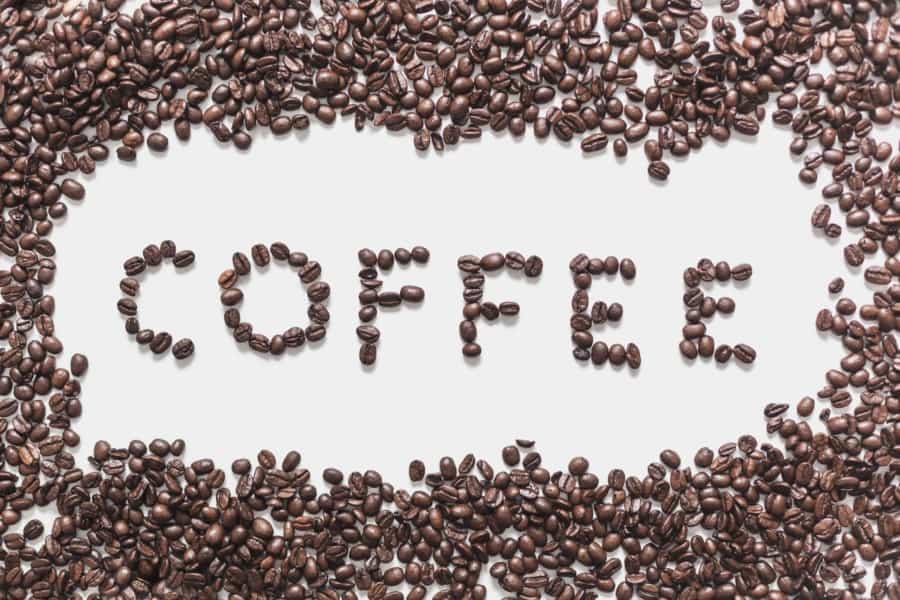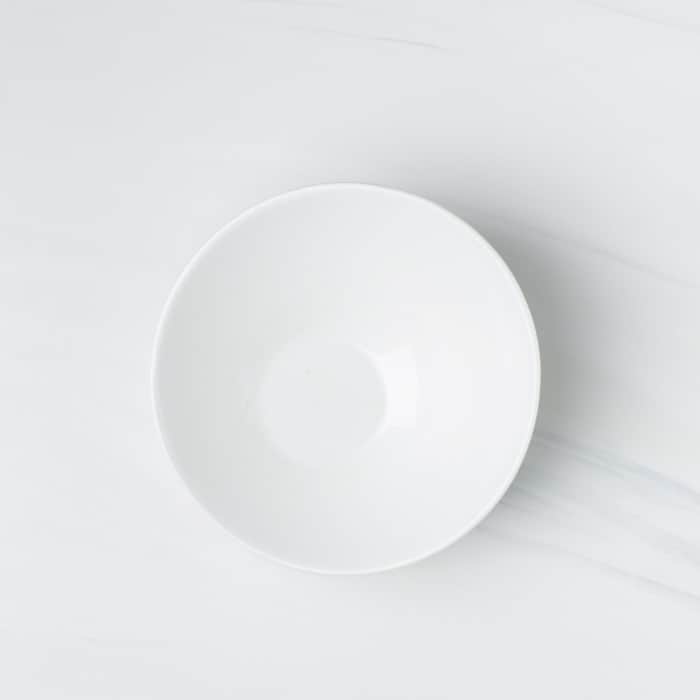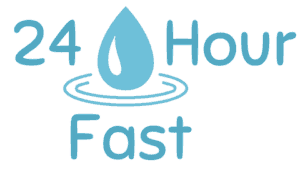This must be one of the most common questions regarding intermittent fasting and understanding what breaks a fast. There is a lot of confusion around intermittent fasting, ketogenic diet, and one of the most popular ketogenic drinks: bulletproof coffee. Let’s clarify all that here, look at the facts, and finally answer the million-dollar question: does bulletproof coffee break a fast?

What is intermittent fasting?
Intermittent fasting overview
First and foremost, let’s talk quickly about intermittent fasting and what it is exactly, as it will be important to understand the effects that bulletproof coffee can have on it.
Intermittent fasting literally means fasting in an intermittent way. In other words, you cycle through periods of eating and periods of fasting. Everyone does that to a certain extent by fasting overnight. But intermittent fasting is pushing that fasting duration further. Indeed, there are several ways of practicing intermittent fasting:
12/12 or 14/10 method
Fasting for 12 hours and restricting the eating to the other 12-hour period. Or fasting for 14 hours and eating during a 10-hour window. This is usually easily achievable by extending the overnight fast by a few hours. Either by finishing dinner a bit earlier or by eating breakfast a bit later. A combination of both can work as well.
16/8 or Leangains method
It is one of the most popular intermittent fasting methods, it is similar to the previous one, but with an extended fast of 16 hours. The eating is restricted to the remaining 8-hour window.

24-hour fasts
Weekly 24-hour fast: this means fasting for 24 hours for one day during the week. It usually means eating one meal only that day, after 24 hours without any food from the day before.
5/2 method: involves two 24-hour fasts during the week for two non-consecutive days. And eating as usual on the other five days of the week. A more flexible approach of this method involves a significant calorie reduction on those 2 days (less than 500 calories) instead of fully fasting.
Alternate-day fasting: this involves a 24-hour fast every other day and is a bit more extreme in that sense. Similarly to the 5/2 method, a more flexible approach consists of a significant calorie restriction instead of a full fast every other day.
OMAD (One Meal A Day): this is basically a 23-hour fast every single day and eating one big meal in the remaining hour. Most extreme in terms of the fast frequency compared to the other 24-hour fast methods.
Longer fasts (over 24 hours): they are not technically intermittent fasting methods from a pure standpoint as there are usually practiced on a non-regular basis. Those fasts can provide specific and deeper benefits than shorter fasts.

Intermittent fasting benefits
Why did intermittent fasting become so popular in the past few years? Mainly because it can provide some very interesting benefits and is easily integrated into most lifestyles.
Among other benefits, intermittent fasting can support:
- Insulin sensitivity: when fasting, insulin level goes down since no food is ingested. Over time, this can support better insulin sensitivity and also prevent insulin resistance.
- Better blood sugar control: better insulin sensitivity leads to better blood sugar control when food is ingested.
- Inflammation decrease: intermittent fasting can help with reducing the overall oxidative stress in the body
- Cells repair: intermittent fasting allows the body to start this repair process also known as autophagy. It is the body’s cleaning process allowing damaged or unnecessary components to be removed at the cellular level.
- Ketosis: after all glycogen reserves have been used during a fast, the body will enter into a fat-burning mode to access fuel. This process releases ketones in the body, known as a ketosis state.
- Hunger management: an underlooked benefit of intermittent fasting is becoming aware of the food we eat. This generally leads to better management and understanding of hunger signals.
- Weight loss: intermittent fasting can be a powerful tool for weight loss as it is easy to reduce the overall calorie intake by eating in a restricted window.

Now that we know what intermittent fasting is and its benefits, let’s see what bulletproof coffee is all about.
What is bulletproof coffee?
Bulletproof coffee recipe
You can find the exact recipe of bulletproof coffee here, it’s a trademarked coffee created by Dave Asprey, but in summary, it contains:
- 1 cup of brewed coffee
- Add 1 or 2 teaspoons of MCT oil
- And 1 or 2 tablespoons of grass-fed unsalted butter (can also be swapped with 1 or 2 teaspoons of grass-fed ghee instead)
All the ingredients are mixed in a blender to get a very creamy coffee.

Bulletproof coffee benefits
Why would you want to drink a buttery coffee full of fats? Well, it is made up of healthy ingredients that are beneficial by themselves:
- Packed with antioxidants present in coffee and grass-fed butter
- Increases energy level from caffeine and fats
- Improves cognitive function from medium-chain triglycerides (in the MCT oil)
- Provides feelings of fullness from high-fat content
- Support ketosis from high-fat content
Bulletproof coffee downsides
However, while bulletproof coffee can provide some benefits, it is important to be aware of its potential downsides as well:
- Low nutrient content: while it has a high content of healthy fats, it lacks in other important nutrients. As bulletproof coffee is usually taken in replacement of a meal, it is important to note that its nutrient and vitamin content may not be as high as the meal it is replacing.
- High calories content: it is not necessarily a downside in all situations but it is essential to take it into account in your overall diet not to find yourself in a calorie surplus.
- High in saturated fat: saturated fats are part of a healthy diet but their amount needs to be controlled and reasonable. A very high amount of saturated fat can be harmful. It is important to be aware of that element to take it into account as part of an overall balanced diet.

Does bulletproof coffee break a fast?
Now, let’s provide the answer that everyone is waiting for.
From a technical standpoint and pure definition of fasting, which means no eating and no calorie at all, then YES bulletproof breaks a fast. A cup of bulletproof coffee can contain anywhere between 300 and 450 calories. This is far from insignificant.
But we don’t live in a world of definitions. Real life is usually more complicated than that. And in that case, the real element to understand is what it means to break a fast from a practical standpoint. In my opinion, breaking your fast means answering yes to the following question: does bulletproof coffee actually negate the fasting benefits you are looking for?
So the very first question to ask yourself should be: why do you fast in the first place? What are your fasting goals and the benefits you are hoping to get? And then, you can determine whether bulletproof coffee will impact negatively all of those benefits.
There are a lot of potential benefits from intermittent fasting but the most common ones can be classified into 3 categories:
- Weight loss
- Ketosis
- Autophagy and longevity benefits
Let’s see how bulletproof coffee impacts each one of those.

Does bulletproof coffee negate the fasting benefits?
Impact on weight loss
When your body is in a fasting state, it uses first all your glycogen reserves and only then tap into your stored fat to produce energy. By fasting consistently, your body becomes more efficient at using fat for fuel. That is why, combined with a healthy diet the rest of the time, it can be a powerful tool to lose weight.
However, when you ingest a significant amount of calories during your fast, such as a bulletproof coffee, your body will use that dietary energy as fuel. In that sense, you will use less body fat than if you didn’t drink that calorie-dense coffee. As a consequence, it can impact the weight loss benefits of your fast.
Also, intermittent fasting can be beneficial for weight loss because it allows you to restrict your overall calorie intake easily. When eating in a reduced period of time, you naturally tend to eat less than in an extended window. That is assuming you don’t compensate or over-overindulge when eating obviously.
And because of the high-calorie content of bulletproof coffee, it can negate that benefit and make the overall amount of calories taken throughout the day much higher. Especially if you don’t specifically pay attention to it. It doesn’t mean that you will necessarily be in a calorie surplus, but those drank calories have to be taken into account.

Because of those two main factors, bulletproof coffee can potentially negate the fasting benefits. If your main goal is to lose weight through intermittent fasting, bulletproof coffee won’t probably help and break your fast in that sense.
There is a time and place that it can still be useful though and we will detail that shortly.
Impact on ketosis
Ketosis is a state that happens when the body uses fat instead of carbohydrates for energy. It will then produce substances called ketones which can be used for fuel.
Because bulletproof coffee mainly contains fats and hardly any protein or carbs, it will not trigger huge spike insulin. Fats have the least impact on insulin. It does not mean there is no impact at all on insulin but the effect is insignificant to take you out of ketosis.
Bulletproof coffee won’t impact your ketosis state and actually improve it by raising your ketones level. As we saw previously, fats from the coffee will likely be used rather than stored body fat temporarily, but it does not impact your ketosis state.
If ketosis is one of the main goals you want to achieve from intermittent fasting, bulletproof coffee won’t have any impact and won’t break your fast.

Impact on autophagy
Autophagy is a cleaning and regenerative process to remove dysfunctional elements and cells. Fasting is the most efficient way to trigger autophagy. When your body is low on sugar and in a ketosis state, there is no external burden and it can focus on repair and recycle processes. There is no food to digest, low insulin and high glucagon levels trigger autophagy.
However, there are multiple factors that impact how easily and when your body will get into autophagy. Like the number of calories and their macronutrient content, the duration of your fast, your current health state, and your insulin level. Someone with insulin resistance may be fasting, if the base insulin level remains high, autophagy won’t be reached as easily.

Because of its high-calorie content, bulletproof coffee will likely stop autophagy. However, it can be a temporary effect. For example, if you reduce the fat quantities in the coffee, the autophagy will be impacted for a shorter time than if it is a fully loaded bulletproof coffee.
In summary, bulletproof coffee will likely stop autophagy and negate its benefits. However, depending on its calorie content and your other personal factors cited above, it can be temporary only. But if the main benefit you want to get through fasting is related to autophagy, bulletproof coffee is not recommended.
See Dr Eric Berg talking in more details about this subject here:
When to use bulletproof coffee while intermittent fasting?
We just saw whether bulletproof coffee will negate the benefits of fasting depending on your main goal. But regardless, it can be extremely beneficial in one specific situation.
Building a new intermittent fasting routine
When you are first trying to practice intermittent fasting, it can be challenging at the beginning. At that stage, you are not focusing specifically on one fasting benefit, but rather building a new habit. You can have a mid to long-term goal, like weight loss for example, but you first have to start by incorporating fasting as a new routine in your life.
For this purpose specifically, bulletproof coffee can be a rather powerful tool. If you are struggling to reach your eating time and tempted to eat a meal earlier, try drinking a bulletproof coffee instead.
Because of its high-fat content, it will leave you feeling full. And as we saw previously, it won’t trigger your insulin level significantly and will maintain your ketosis state.
If the alternative is eating a meal and stopping your fast earlier than expected, then definitely try it. It can help you extend your fast and get your body used to burn fat for fuel. Little by little, you will get used to your new fasting schedule and will be able to go through your fast without the bulletproof coffee. That should be the goal.
It can help you build a consistent habit of intermittent fasting and support you in the first few weeks. But it should probably not be used as a long-term practice.

Conclusion
As we saw here, there is not one single answer to this question. Does bulletproof coffee break a fast? No, if you just want to stay in ketosis. Yes, if you are looking for weight loss. Most likely yes, if your main goal is autophagy or other longevity benefits that fasting can provide.
Overall, it depends on your own goals. If it can help you get into a regular practice of intermittent fasting, great! Use it. But in the long term, it’s probably best to drink it sparingly, being aware of its benefits and downsides.
As usual, find what works best for you. Depending on where you are in your fasting journey and what you are trying to achieve by fasting.
The information we provide at 24hourfast.com is not intended to replace a consultation with a qualified medical professional. By interacting with this site, you agree to our disclaimer. Read more.
